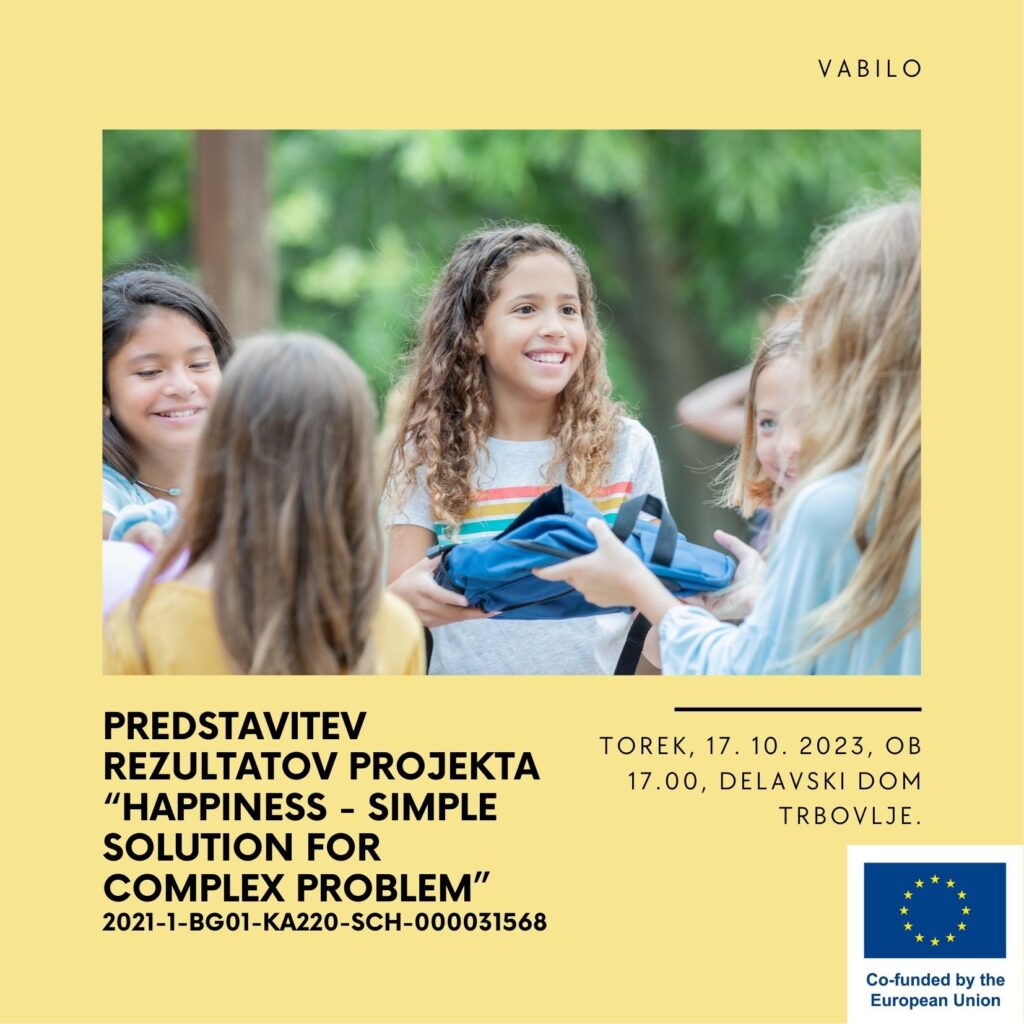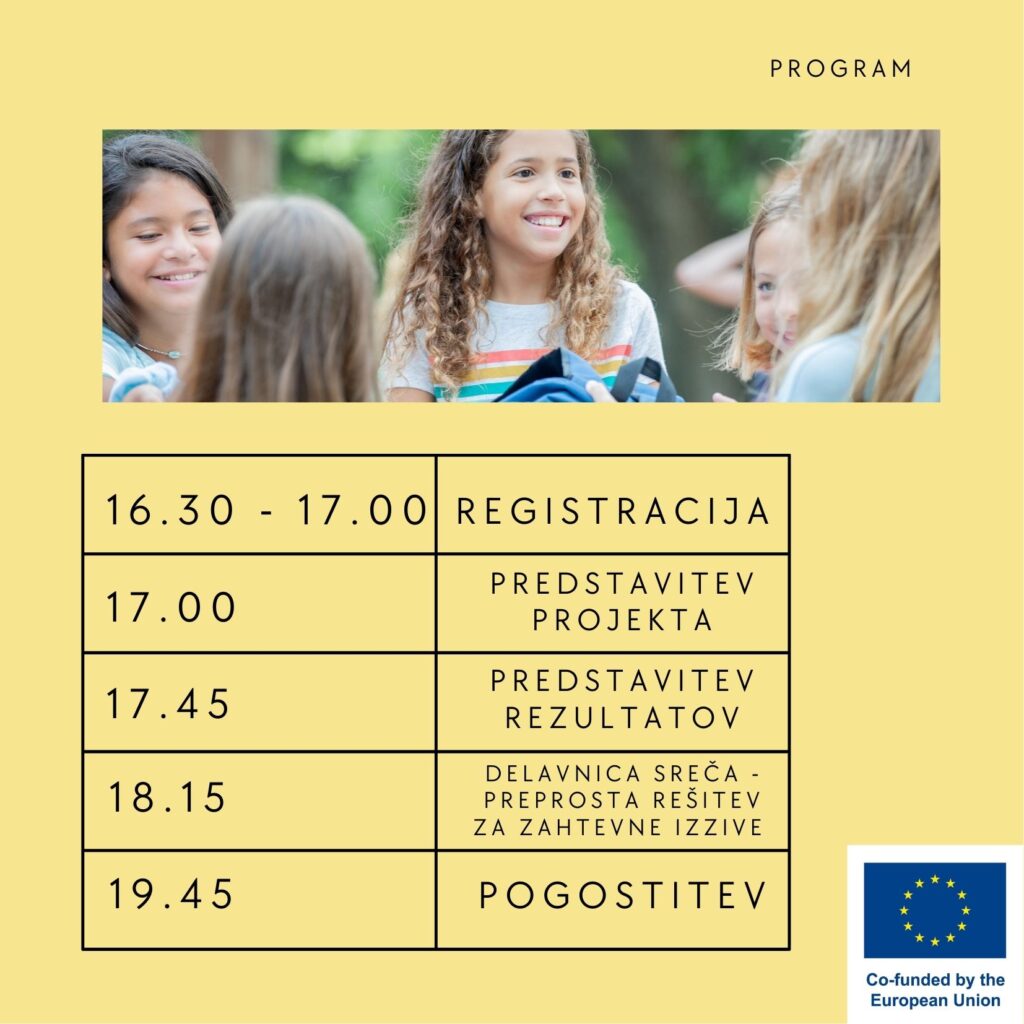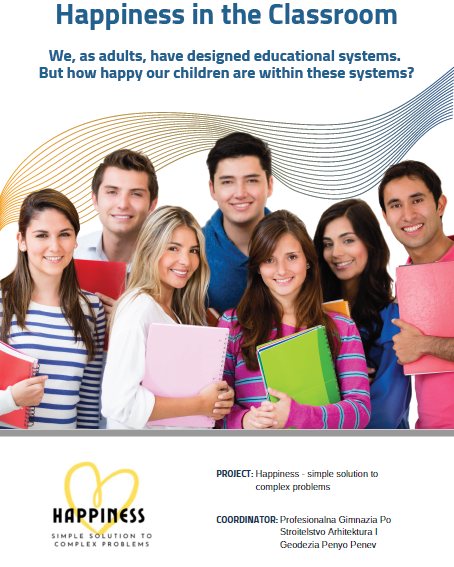
Happiness - simple solution for complex problems
This project is a two-year cooperation partnership project (KA2) applied in Bulgaria and Aspira as a partner. The aim of the project is to consolidate the foundations of happiness and improve the well-being of students in secondary schools. Partners come from Poland, Portugal, Spain, Slovakia, Bosnia and Herzegovina and of course Slovenia and Bulgaria.
Promoting well-being in schools can sometimes seem at odds with other priorities, such as academic standards. Unreasonably high expectations, a regime of constant testing, or an overemphasis on the importance of academic performance can actually undermine student well-being. Pupils need additional non-academic services with an emphasis on happiness to gain strength and positively reshape all their perceptions of well-being: intellectually, emotionally, socially, professionally, personally, as well as their vision of the future.
Mastery of socio-emotional skills has been shown to contribute to the development and use of cognitive functions. It has the potential to be an indispensable tool for teachers in improving the academic performance of their students, resolving conflicts, and improving interpersonal relationships. This shift in focus to happiness will also be important in supporting students in the current Covid-19 crisis. They need to adapt quickly to ever-changing learning conditions, even if they are completely unprepared for them.
Our project focuses on the needs of two target groups: students aged 13-17 and high school teachers.
Students need a happiness-focused curriculum as it will allow them to take control of all aspects of their lives. It will also guide them with the means to improve their chances of success in the future.
Teachers, however, need additional training and support to work effectively in increasingly multicultural classrooms. Due to their specific mindset and lack of specific education on the topic, they tend to focus only on students ’academic performance and pay too little attention to their social and emotional skills. Incorporating happiness training into their daily work will be a valuable tool to help increase student learning performance, resolve conflicts and other problems in the classroom, and improve their relationship with trusted students.
The tangible results of this project will be:
- Content of happiness training for students. Upon completion of the training, students will increase their level of social and emotional skills. They will also gain a conscious perception of their happiness and the ways in which it can be maintained, regulated and improved.
- Convenient and user-friendly material for teachers. A booklet with good practices and a handbook for teachers to support the training and practical application of the acquired knowledge in the daily work of teachers with students.
- Custom online education system – an educational resource with t.i. bite-size learning for students along with digital assessment tools and teacher training materials.


Results:




Podpora Evropske komisije za pripravo te publikacije ne pomeni potrditve vsebine, ki izraža le mnenja avtorjev, in Komisija ne more biti odgovorna za kakršno koli uporabo informacij, ki jih vsebuje.

